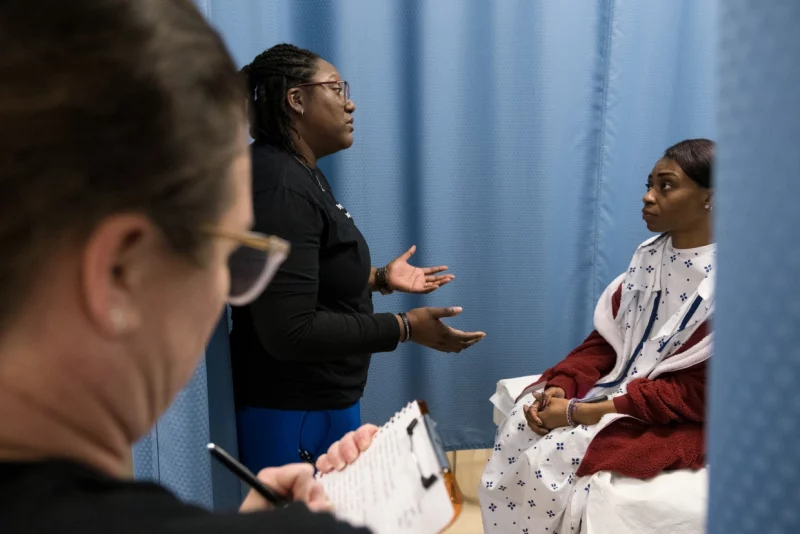There are few Black sexual assault nurse examiners. One university wants to change that.
Share
Explore Our Galleries
Breaking News!
Today's news and culture by Black and other reporters in the Black and mainstream media.
Ways to Support ABHM?
By Kate Martin, NBC News

FAYETTEVILLE, N.C. — The hospital where Sharita Godwin works in central North Carolina doesn’t have any Black nurses trained in administering forensic exams to sexual assault victims.
She’s aiming to become the first one.
Last week, Godwin joined seven other nurses from across the region at Fayetteville State University, as part of the historically Black school’s first class for aspiring sexual assault nurse examiners. The program, which took place over a couple of multiday sessions this fall, trained nurses to treat patients in crisis, including collecting forensic evidence for law enforcement and preventing sexually transmitted infections or pregnancy.
Godwin, an emergency room nurse at Betsy Johnson Hospital in Dunn, North Carolina, for the past eight years, said she wanted to become certified in sexual assault exams as a way of supporting some of the most vulnerable patients the hospital treats.
“It makes you feel a little bit more comfortable,” Godwin, 36, said of patients seeing a nurse who looks like them. “The patient might be more willing to open up.”
About 1 in 5 North Carolina residents are Black, according to census records, but nurses trained to treat sexual assault patients are overwhelmingly white, said Jennifer Pierce-Weeks, CEO of the International Association of Forensic Nursing, an industry group focused on training.
The training program at Fayetteville State was the first Pierce-Weeks had heard of at an HBCU, and she hopes to see more efforts to diversify the field of sexual assault nurse examiners.
Discover more about this program.
Check out this article about Black-owned birthing centers that aim to tackle this issue. Institutionalized racism that prevents people from entering certain careers can also prevent them from seeing the doctor.









Comments Are Welcome
Note: We moderate submissions in order to create a space for meaningful dialogue, a space where museum visitors – adults and youth –– can exchange informed, thoughtful, and relevant comments that add value to our exhibits.
Racial slurs, personal attacks, obscenity, profanity, and SHOUTING do not meet the above standard. Such comments are posted in the exhibit Hateful Speech. Commercial promotions, impersonations, and incoherent comments likewise fail to meet our goals, so will not be posted. Submissions longer than 120 words will be shortened.
See our full Comments Policy here.